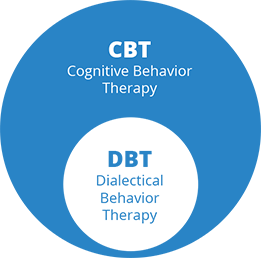Individuals who cut themselves or engage in other self-injurious behaviors often are using this unhealthy coping strategy to deal with emotional pain or confusion that they do not know how to process in any other way. This type of behavior is associated with several diagnoses including anxiety disorders and personality disorders, and patients often have a history of…
Everyone experiences job-related stress. Whether it’s communicating with multiple people, juggling responsibilities or adhering to deadlines, workplace stressors are common. Short-term stressful moments are typical, but experiencing constant or long-term stress can affect your physical and emotional health. What begins as job-related stress can extend to other situations and impact your life outside of work…
Parenting can be hard at the best of times. When you’re struggling with depression, you might feel like you can’t provide the care and support your children need. There are many things you can do to make caring for your children a little easier while you treat your own depression. On days when you feel like…
Psychotherapy is one of the best treatment methods available for a number of mental illnesses. One of the most common types of therapy is called Cognitive Behavioral Therapy (CBT). Also called talk therapy, CBT focuses on talking about your problems to help you frame your thoughts differently. If you feel like negative thoughts are always in…
People rarely view psychiatric conditions in a positive light. In the U.S. and other countries worldwide, mental illness carries a stigma. Social and perceived stigmas impact people diagnosed with a psychiatric condition in significant ways. In the U.S., fewer than half of adults with a psychiatric disorder sought out health services in the past year, which help…
Clients in the psychiatric residential and day treatment programs at Skyland Trail benefit from a powerful mix of evidence-based therapeutic approaches. Acceptance and Commitment Therapy, or ACT, is an important component of treatment for many clients. Who Benefits from ACT? Some modalities like Cognitive Behavioral Therapy (CBT) or Dialectical Behavior Therapy (DBT) work best for clients with specific diagnoses and…
1. Educate yourself The best thing for family members to do is to educate themselves about their loved one’s mental illness and treatment. Knowledge can provide families practical insight and understanding. Find local educational programs and support groups in your area through NAMI or participate in our Family STEP Program Tuesdays at 6:30 PM. A strong support network can…
The first episode of mood disorders like bipolar illness and major depressive disorder typically occurs in adolescence or early adulthood. However many adults in their 30s, 40s, 50s or older begin to struggle with depression in new ways as an older adult. Medical problems and the losses we experience as we age can affect how we view ourselves and how we relate to…
Suicide is the 10th leading cause of death in the Unites States. Every year, more than 44,000 Americans die by suicide. While there is no “one size fits all” treatment for someone experiencing suicidal thoughts, evidence shows that protective factors can help lessen the likelihood of suicide among adults. At Skyland Trail, clients learn to identify…
Music therapy is one of the adjunctive therapies offered at Skyland Trail. Each week clients in our residential and day treatment programs have the opportunity to participate in music therapy. During these groups, clients use breathing and rhythm exercises to encourage expression of emotion through activities such as drumming and guided imagery. Clients also have opportunities…









